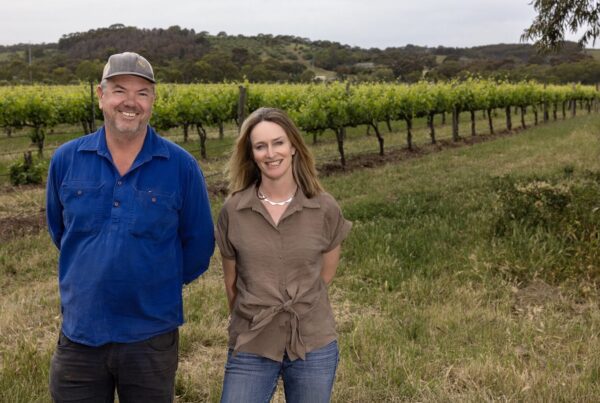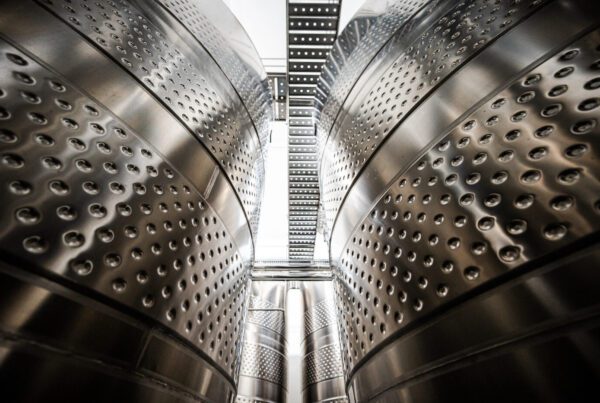
Deja Vous.
I am in France visiting friends and relatives and admiring how effectively the French recruit the world wine media and consumers to their fine wine story by constantly improving quality and image.
I opened the Friday WBM, The Week That Was, expecting the usual entertaining and perceptive commentary about my industry, the Australian wine community.
I was instantly crushed, drained and (de)pressed by the lead story about the 13 big company signatories to an agreed goal and solutions to the current malaise besetting our community.
I leave aside the three signatories from Australian Grape & Wine and Wine Australia, paid officials, with responsibilities to the 3,000 mainly small winemakers and 6,000 grapegrowers of Australia, although they have supported and validated the pre-eminence of the 13 large companies to decide the future of our community.
I was instantly transported back to 1986 and the ‘Grape Wars’ when for the first time in history, the large company dominance of industry politics was challenged by the (Small) Australian Winemakers Forum.
Ironically the issue was the survival of the industry statutory body, now Wine Australia, that the large companies led by Ray Kid of Lindemans and Jim Williams of Penfolds wanted to abolish to save the compulsory levy for their own company purposes.
If that had happened, we might still be calling our wines Claret and Burgundy and our regions would have remained undefined as the big companies wanted.
Fortunately, the Federal Minister for Primary Industry, John Kerin, sided with the small winemakers and the co-operatives to retain and enhance the role of the statutory body.
In the words of Ray Kid of Lindemans at the time,
“Boutique wineries’ scale of production contributes little to the Australian economy or employment. The potential to export these wines is extremely limited.”
How wrong he was!
It seems our industry institutions (AGW and Wine Australia) and the large, mainly Riverland/Sunraysia/Riverina winemakers have belatedly joined the Ray Kid camp.
It seems the 3,000 small winemakers of Australia are largely irrelevant to the future of the Australian wine community and that their opinion about the causes and solutions to our current problems are not informed in the way the opinions of the CEOs of these large companies are.
Let me give a little credit where a little credit is due.
The four problems the 13 have identified are reasonable although only the first two are really applicable to small wine enterprises:
“Future proofing Australia’s supply base;
“Enhancing the quality, value and image of Australian wine.
The other two are meeting ESG standards, something that is second nature to most small Australian wine companies and product innovation, applicable to large companies making non-traditional products.
Traditional varieties and wines are the staple of small winemaking enterprises.
I have more than one friend I respect among the 13 large company signatories.
I don’t understand how they have been seduced into this one-sided pact.
Of the 13 very important, busy and successful executives represented, there is not one who I would take to my vineyards to listen to their views on how to grow better grapes; to my winery to enlist their opinion how to make better wine; or into the marketplace to talk with the conviction and authenticity a small winemaker must muster to represent their dream and wine.
Among the small winemaking community, the peers I listen to on all these subjects are legion because that’s what they do best, grow grapes, make wine and sell their story.
I would trust their gut experience and opinion of the causes of the industry’s problems and the solutions way ahead of the 13.
If the 13 want to do something tangible and effective for the Australian wine community’s future, they should champion levy reform, to make the assessment of levy on grape and wine based on value, not volume as it persists today.
The decline in the spending power of Wine Australia to promote Australian wine and to support research and education has become critical even catastrophic.
We are willingly and knowingly undermining our support institutions, the AWRI and the Universities, and leaving market failure in international marketplaces unaddressed.
How’s that for commitment to future generations and for perception of the core problem of our industry at this moment, maintenance of the power to improve the quality and image of Australian wine to match it with the French.
Photo: Taylor Nicole (Unsplash).













This coming from the man who orchestrated the ridiculous WET is a bit rich to be honest. I do admire him selling out to a big corporate only to buy the original winery back at cents to the dollar.